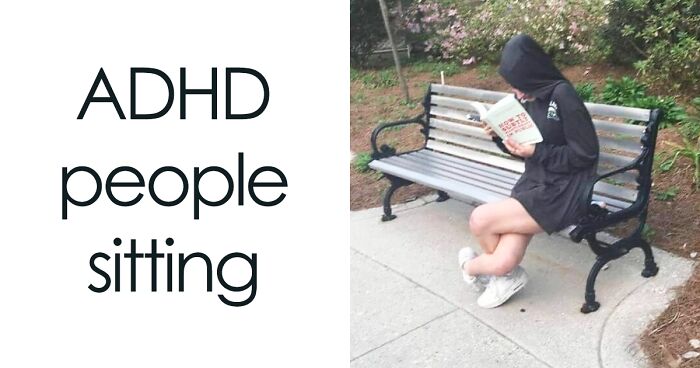Around the world, more than 366 million adults suffer with attention-deficit/hyperactivity disorder (ADHD). For the United States of America alone, it is projected that six million children have been diagnosed. Attention-deficit/hyperactivity disorder (ADHD) is a neuro-developmental condition. This is not a topic to be laughed at. It has the potential to have an effect on your day-to-day life and to cause long-term difficulties in areas such as education, employment, or relationships if it is not treated effectively.
Being stated that, there are occasions when laughing may be a kind of medication. There is a possibility that this is the reason why the Instagram profile for ADHD Meme Therapy has amassed more than 1.3 million followers.
“Your friendly neighborhood Meme Therapist” is how the Iranian who is behind the account introduces himself. Having been diagnosed with both attention-deficit/hyperactivity disorder (ADHD) and moderate depression, he is well-versed in the challenges that are associated with mental health.
#1
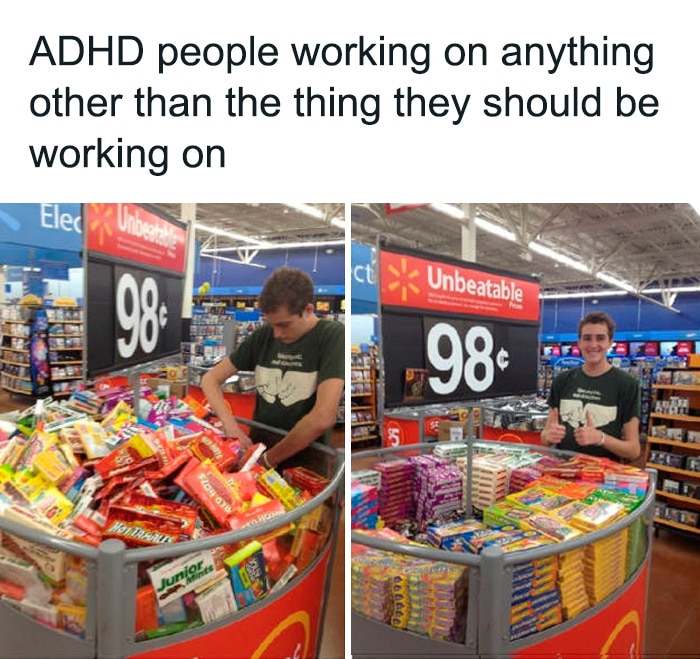
If you are just trying to skim through the posts on your feed and you accidently swipe to another one, it may be really aggravating. It appears to be a design decision that may benefit from some sort of reevaluation.
Although it is completely unrelated to the issue at hand, is anybody else weary of inadvertently bumping their phone sideways and then getting taken to the next post page? I really hope that they would do rid of this function.
#2
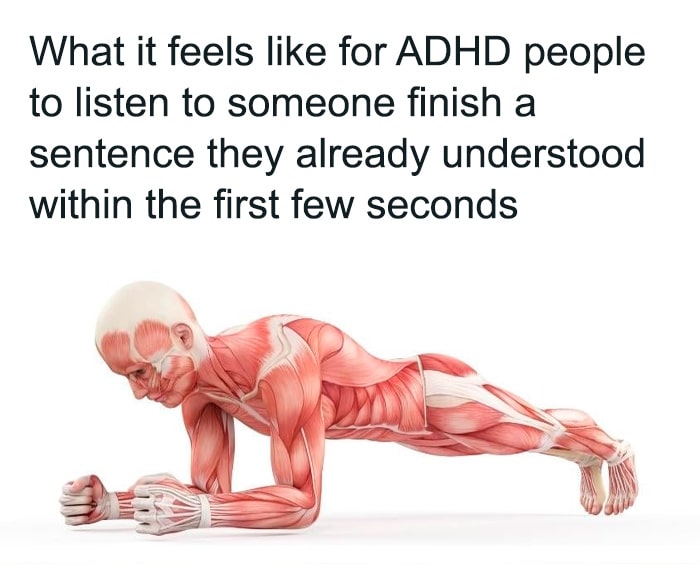
Well, yeah. Do I have ADHD? This one hits home even more than the majority of the others, and it truly does touch home.
Many persons who have attention-deficit/hyperactivity disorder (ADHD) find that they are easily distracted or agitated by things like that. Have you investigated any methods that might assist you in managing those distractions, or is this something that you are currently researching and trying to figure out?
#3
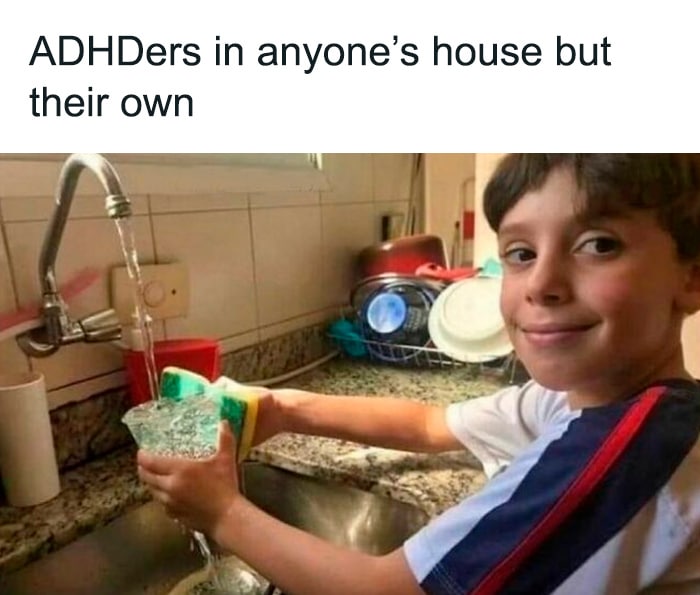
Do you receive the reputation of being forgetful or ditzy? They claim that you are usually late, impetuous, fidgety, or unorganized, and that you don’t listen to what they have to say? Do you find it difficult to concentrate, maintain organization, and complete tasks? Are you someone who frequently fails to finish the task that you have set out to do? It is possible that you have attention-deficit/hyperactivity disorder (ADHD) if you responded yes to a couple of these questions.
To be diagnosed as an adult, however, you would have needed to have been a youngster who exhibited attention issues or some other symptoms in order to be eligible for the diagnosis. In spite of the fact that you did not obtain an official diagnosis at the time.
The attention-deficit/hyperactivity disorder (ADHD) is one of the most prevalent mental diseases that afflict youngsters. On the other hand, the majority of people who have ADHD were unaware that they had it when they were children.
#4
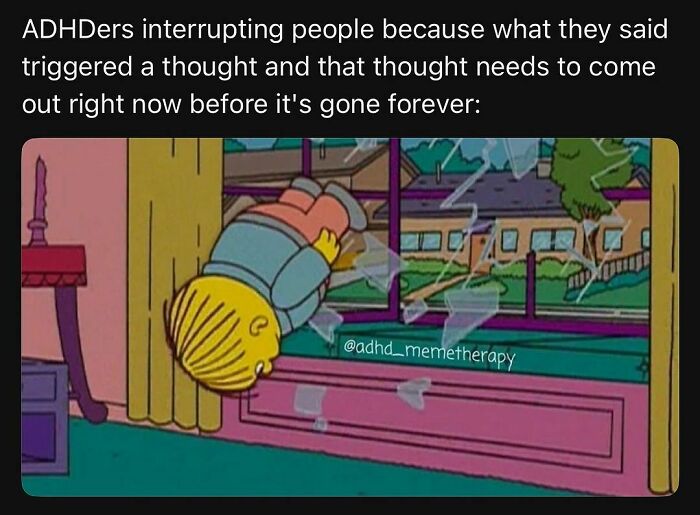
Attention-deficit/hyperactivity disorder (ADHD) is not usually diagnosed in childhood. It might be misunderstood as feelings of sloth, melancholy, or worry at times. There are also instances in which it is completely overlooked since the child is doing really well in school, but later on, they fail to meet the responsibilities of college, job, or even relationships.
As stated by WebMD, those who are more energetic and impulsive are more likely to receive a diagnosis throughout their youth due to the fact that their conduct was disruptive inside of the classroom. On the other hand, attention-deficit/hyperactivity disorder (ADHD) might not be identified in individuals who struggled to pay attention but had no outbursts.
#5
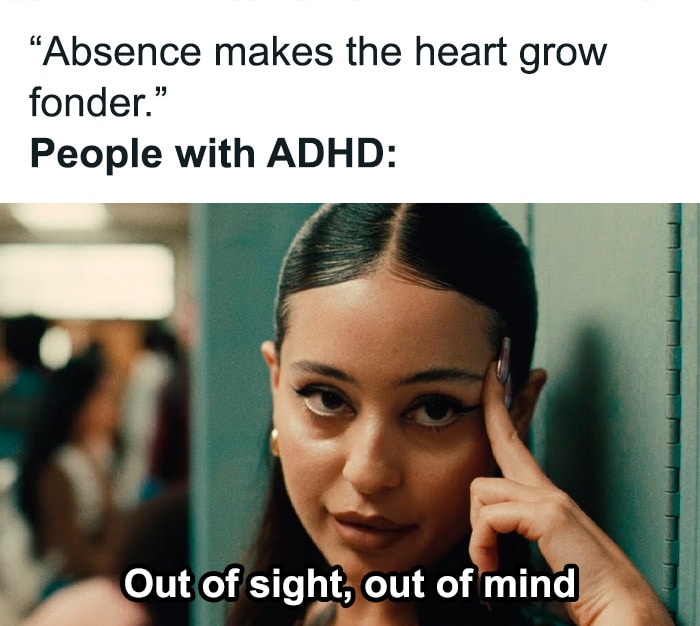
About sixty percent of those who were diagnosed with attention-deficit/hyperactivity disorder (ADHD) when they were children will continue to exhibit symptoms when they are adults. The symptoms may fluctuate over time, but the majority of people do not outgrow it.
Therefore, if you were diagnosed with attention-deficit/hyperactivity disorder (ADHD) when you were younger, there is a strong probability that you still have it now that you are an adult. Additionally, according to Forbes, there are around 129 million children and adolescents who suffer from attention-deficit/hyperactivity disorder (ADHD).
#6
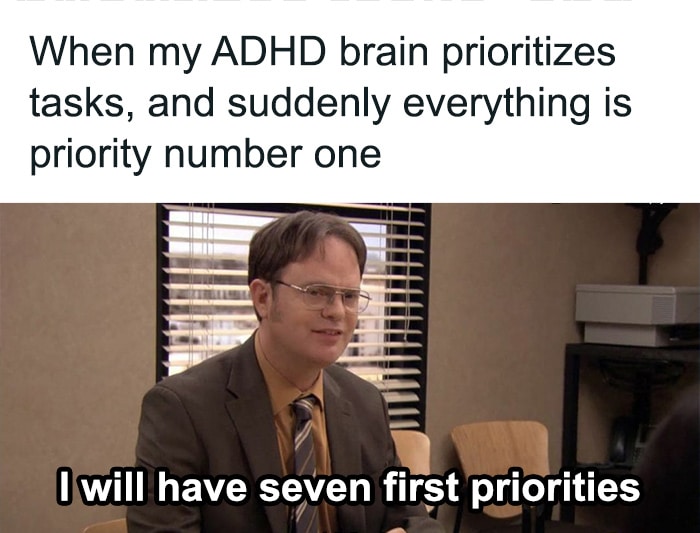
Use this, and jot down the ten things that are most essential. Examine them in relation to one another, and then write down the one that stands out as the most significant in each comparison. After that, you should sum up the scores, and the one that received the highest score is the one you should begin with, followed by the next one.
#7
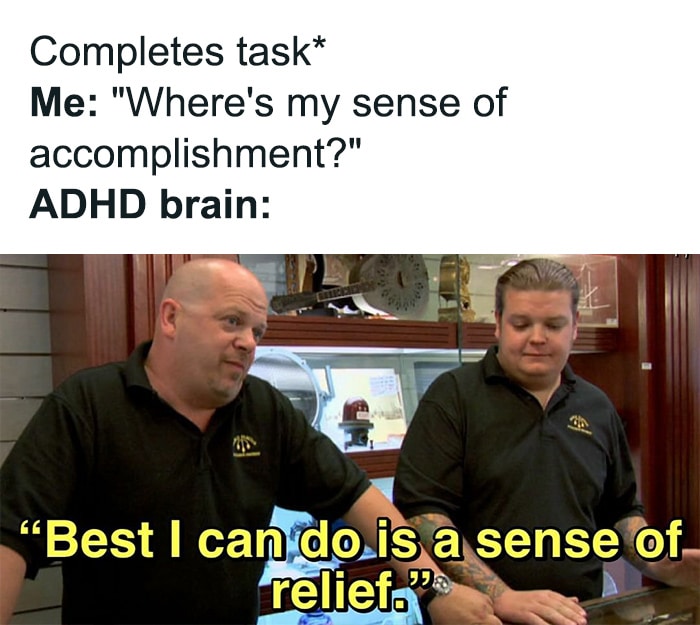
According to the online resource Psychiatry.org, “adults with ADHD may experience poor self-worth, sensitivity towards criticism, and increased self-criticism possibly stemming from higher levels of criticism throughout life.” Despite the fact that the Mayo Clinic indicates that hyperactivity may lessen in adulthood, it is possible that they may continue to suffer with impulsiveness, restlessness, and difficulties paying attention.
#8
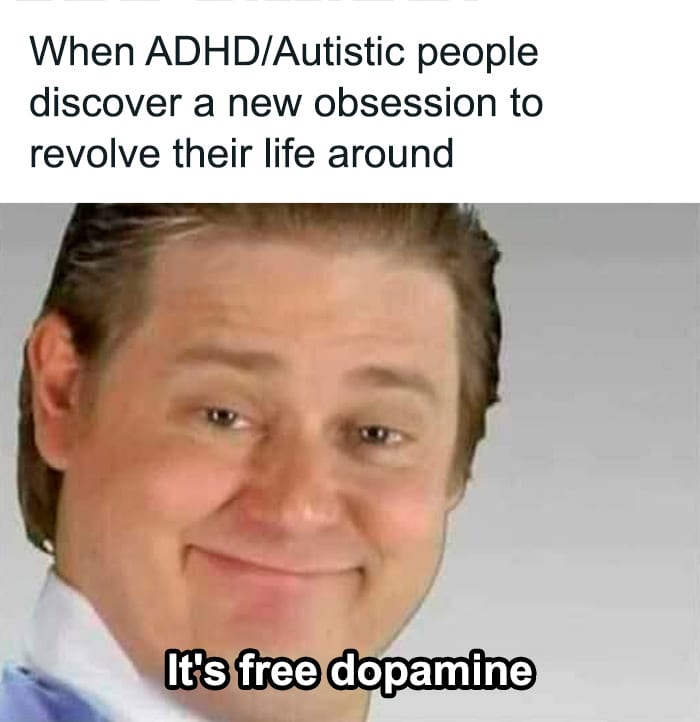
More recently, I’ve been playing the game Hades. Now I’m trying to urge myself to study and take care of my obligations while also combining that with a variety of other unique hobbies. I feel like that one meme of the mother with rebellious children on a leash all at the same time.
Many individuals who have attention-deficit/hyperactivity disorder are unaware that they have the condition; they are just aware that doing routine chores might be difficult for them. According to the website, adults who have attention-deficit/hyperactivity disorder (ADHD) may have trouble concentrating and setting priorities, which can result in missed deadlines as well as forgotten meetings or social arrangements.
When it comes to the ability to manage impulses, individuals who have attention-deficit/hyperactivity disorder (ADHD) may have episodes of mood swings and outbursts of fury, as well as the inability to wait in line or deal with traffic.
#9
It’s true. One day, out of the blue, you suddenly decide that you no longer desire it, and the mere idea of consuming it again makes you feel sick to your stomach.
It would indicate that boys are more likely to suffer from attention-deficit/hyperactivity disorder (ADHD) than girls. But this does not imply that it is more prevalent among males. According to researchers, females frequently receive incorrect diagnoses or are not diagnosed at all.
And the reason for this is because the symptoms of the two are different. Psychiatry.org states that “boys tend to present with hyperactivity and other externalizing symptoms, whereas girls tend to have inactivity.” However, girls tend to be more inactive than boys.
#10
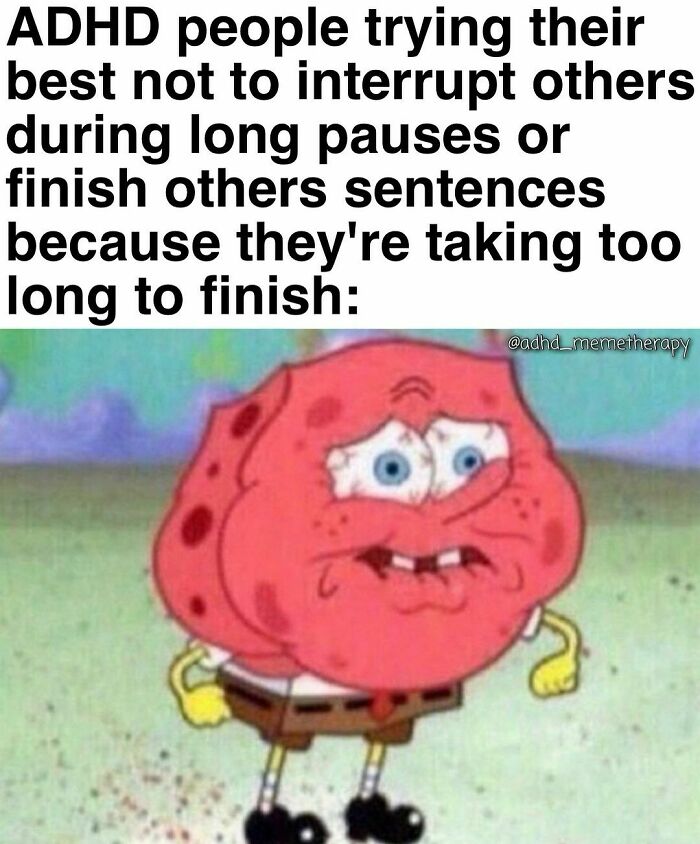
According to a survey that was published by Bored Panda in May of this year, the acknowledgment of gender-specific symptoms has led to an increase in the number of women who have been diagnosed with attention-deficit/hyperactivity disorder (ADHD). When asked about the condition at the time, psychologist Terry Matlen Matlen stated that “women with ADHD often present differently than men with ADHD.”
“Women have a tendency to internalize their symptoms, which include feelings of being overwhelmed, anxious, and depressed; self-medicating with food and/or substances such as alcohol or drugs; being attracted to addictive behaviors such as excessive shopping, daydreaming, inability to manage household tasks, excessive talking, and so on.”
#11
Hear, smell, and see a thing. The fact that my mother is able to hear, smell, and see things that no one else is able to irritates her to no end. When she was a child, we made fun of the fact that she could simultaneously work as a police dog. It is impossible for her to go asleep when there is even the tiniest LED diode in the room or when there is a fan operating in another room at the lowest speed.
#12
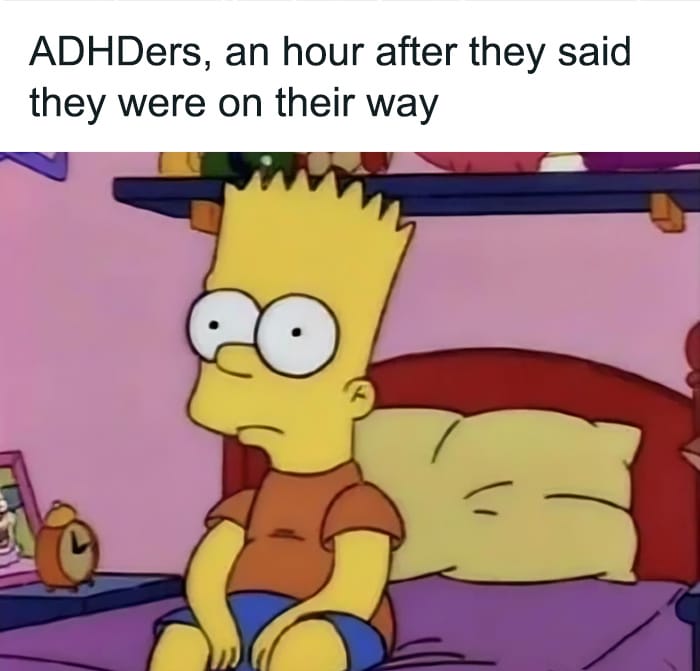
My mother has attention-deficit/hyperactivity disorder (ADHD), and I can assure you that she was never late because she was sitting on the bed. She is already running behind schedule, but the washing machine has to be loaded, and she was going to wipe the spill, but she forgot that there are ten times that she needs to clean right now.
Now her blouse is wrinkled, and she needs to change, and she actually got hot, so she should take another shower, and and and some more. It is probable that she has never sat down to watch a complete movie in her entire life.
I do not believe that I have ever witnessed her sitting down and relaxing for more than ten minutes when she was doing so. There is always something that has to be done first, but she is in such a state of distraction that she never actually gets anything done.
#13
Then, when antidepressants aren’t working, they simply keep giving you more or different antidepressants, and then all of a sudden, you’re 36 years old, and a psychiatrist finally asks you if you’ve ever been assessed for attention-deficit/hyperactivity disorder, and after that, your entire life begins to make sense….
During my childhood, the term “unruly brat” was used to describe all children who were having difficulties. This was due to the fact that various types of children were not yet acknowledged in my nation.
#14
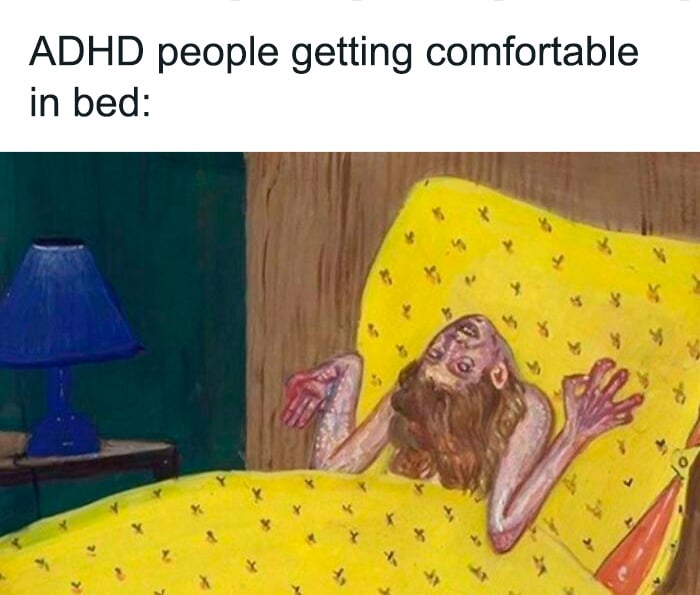
However, you have to go to the toilet, and you are unable to find a position that is comfortable for you, so you are unable to sleep at this time.
OR you were clutching a pillow in a particular manner, and you are unable to locate the warm regions that were previously occupied by your arms.
That is a difficulty that everyone can relate to! When you just feel comfy, only to find out that you’ve moved to a different location, it may be really frustrating. When you try to rest, it seems as though the entire universe is working against you! I was wondering if you have any useful tips for getting back into your comfort zone.


